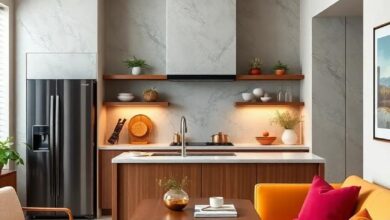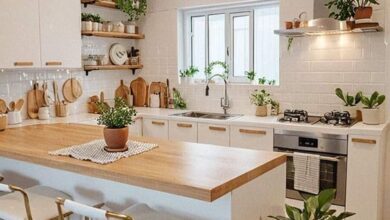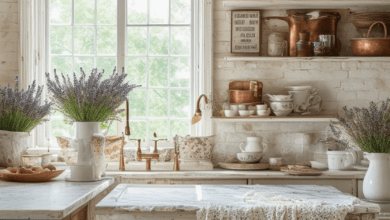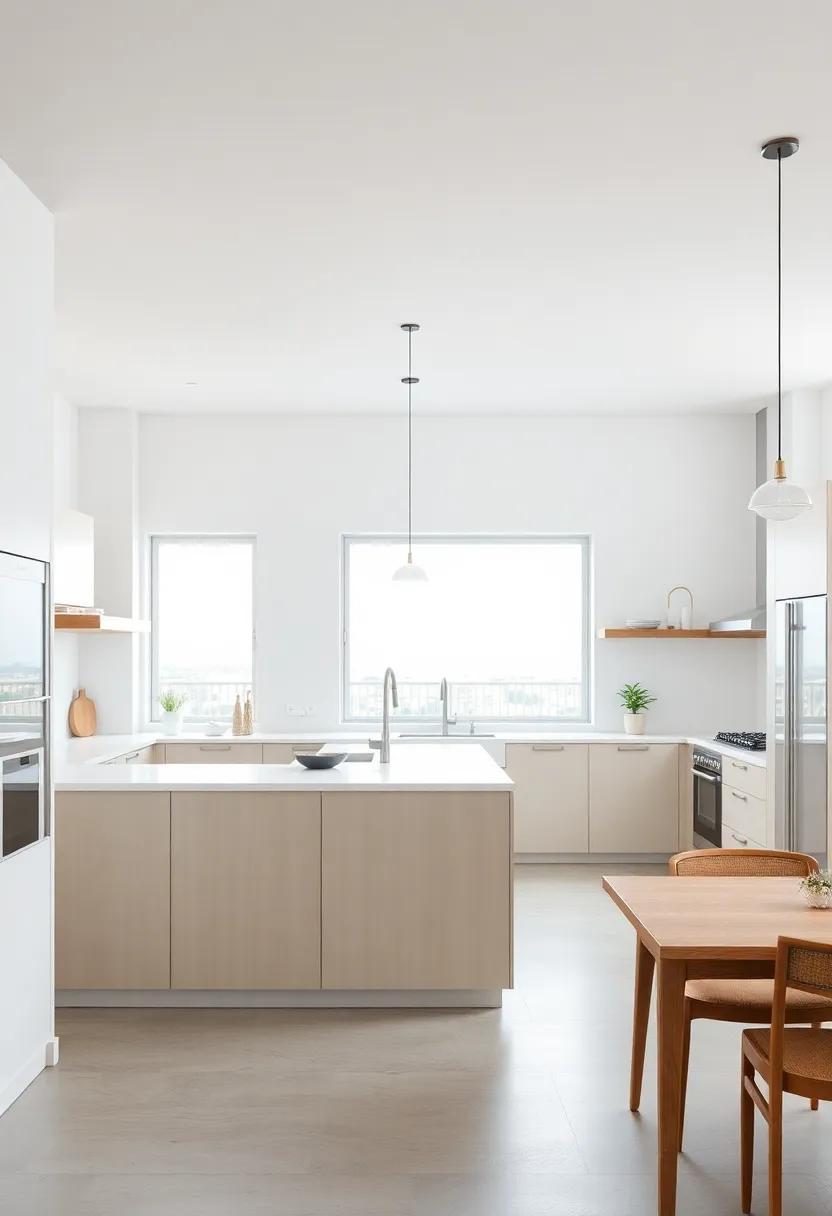
Embracing Space: The Allure and Functionality of Open Concept Kitchen Designs
In the heart of the modern home, where culinary creativity meets social interaction, the open concept kitchen has emerged as a symbol of contemporary living. Gone are the days of isolated cooking spaces confined by walls; today’s designs invite an influx of natural light and seamless movement, blurring the boundaries between cooking, dining, and entertaining. This architectural evolution reflects more than just aesthetic preferences; it encapsulates a lifestyle that cherishes connection and versatility. As we delve into the allure and functionality of open concept kitchens, we will explore how these spaces not only enhance our daily routines but also foster a sense of community and warmth in our homes. Join us on a journey through the engaging elements of open concept design, where style meets practicality, and every meal becomes an occasion to savor together.
Embracing the Serenity of Open Spaces in Modern Kitchens
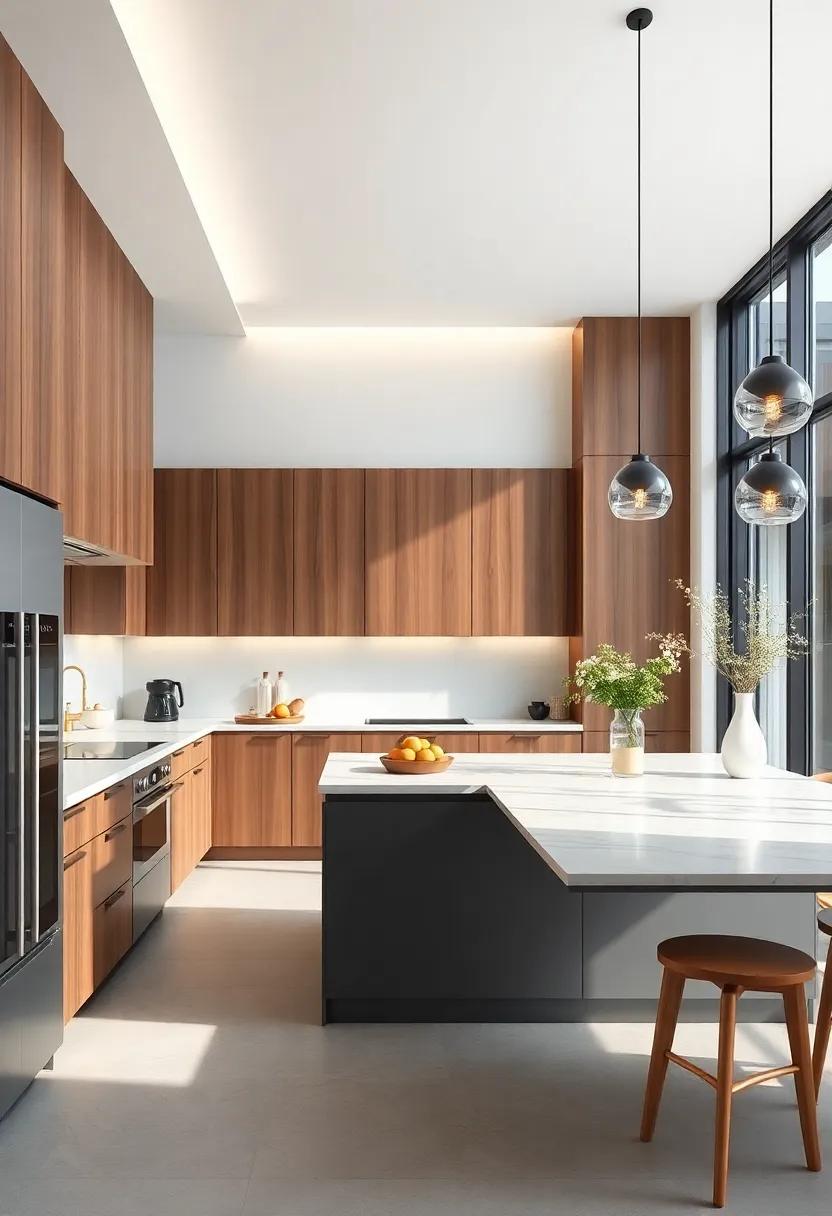
in the heart of modern living, the allure of open spaces has transformed kitchens into more than just functional areas—they have become the epitome of comfort and connection.The seamless integration of kitchen with dining and living spaces encourages a flow of energy that is both inviting and relaxing. homeowners relish the ability to cook, entertain, and share moments with family and friends without feeling confined. The absence of walls allows natural light to cascade through, enhancing an atmosphere of tranquility and warmth.Embracing this design beliefs enables one to create a sanctuary where culinary creations meld harmoniously with everyday life.
To maximize the serenity offered by open kitchen spaces, consider incorporating elements that foster balance and aesthetic appeal. Here are some design tips to help achieve a peaceful habitat:
- Soft Color Palettes: opt for calming hues like pastel shades or neutrals to enhance the spacious feel.
- Natural Materials: Use wood, stone, and organic textiles to bring an element of nature indoors.
- Functional Furniture: Choose multi-functional furniture pieces that provide flexibility without clutter.
By prioritizing these aspects, one can create an open kitchen that acts as a serene retreat, allowing the chaos of daily life to fade away. For further inspiration on open concept designs,visit Houzz to explore a myriad of creative ideas that blend functionality with tranquility.
Blending Functionality and Aesthetics in Open Concept Designs
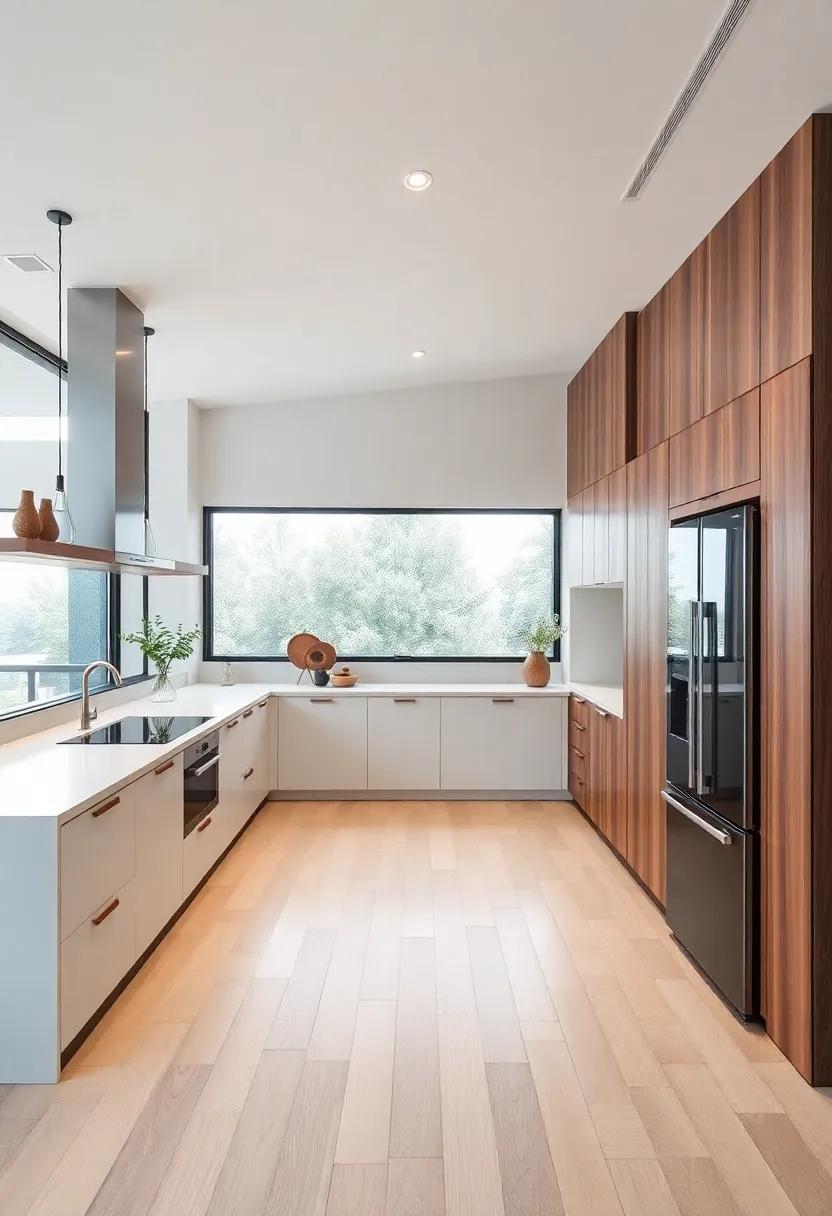
Open concept kitchen designs effortlessly harmonize functionality and aesthetics,allowing these spaces to become the heart of the home. The removal of traditional barriers not only enhances visual flow but also promotes interaction,making it easy for family and friends to gather. To elevate both usability and style, designers can focus on several key elements:
- Multi-functional islands: Serving as a prep area, dining space, and additional storage, islands are crucial in maximizing efficiency.
- Natural light: Incorporating large windows or skylights can brighten the space, making it feel inviting while showcasing the design.
- Coherent color palettes: Using complementary colors across kitchen and living areas fosters a cohesive look, tying the spaces together.
Incorporating unique materials and textures can also enhance the overall visual appeal,creating a balanced atmosphere. As a notable example, a mix of wood, metal, and stone can anchor the design while offering durability. Simultaneously occurring, cleverly placed lighting fixtures can serve dual purposes, providing task lighting while acting as striking decor. Here’s a simple comparison of common materials used in open concept kitchen designs:
| Material | Benefits |
|---|---|
| Quartz | Durable and easy to clean |
| Wood | Adds warmth and character |
| Stainless Steel | Modern look with high durability |
| Tile | Versatile designs and patterns |
By thoughtfully integrating these aspects, homeowners can create an open concept kitchen that not only meets their practical needs but also serves as a stunning centerpiece in their living environment. For further ideas and inspiration on open concept designs, House Beautiful offers extensive resources and showcases stunning real-life examples.
Illuminating the Heart of the Home: natural Light in Open Kitchens
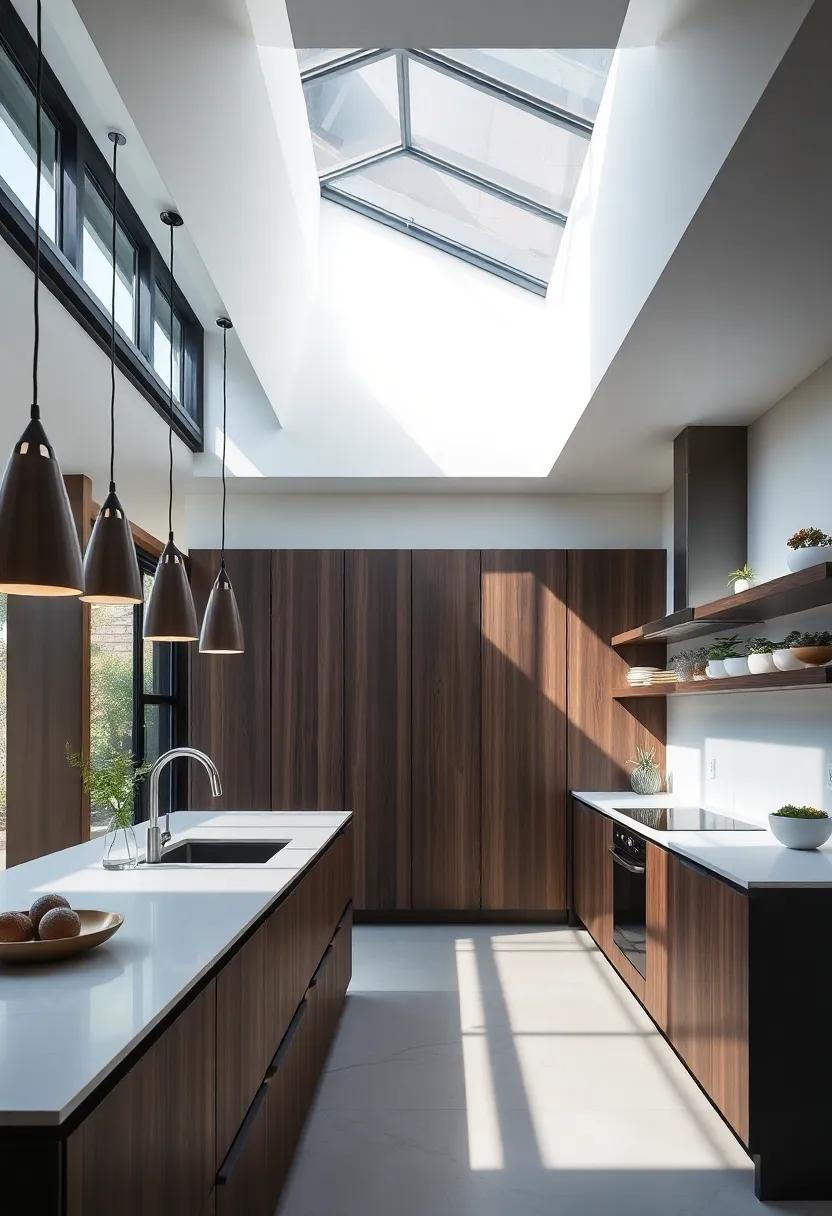
Natural light transforms open kitchens into vibrant spaces that not only enhance the aesthetic appeal but also elevate the overall atmosphere of the home. By maximizing daylight, these designs create an inviting environment, fostering connections among family and friends. When sunlight streams through expansive windows or reaches out from skylights, it brings warmth, encourages creativity, and energizes cooking experiences. Incorporating reflective surfaces and light colors can further amplify this effect, creating a harmonious blend of practicality and beauty.
- Expansive Views: Open kitchens enable diners to enjoy panoramic outdoor views,merging indoor and outdoor living.
- Health Benefits: Natural light boosts mood and productivity,making meal prep a more pleasurable experience.
- Eco-Amiable Design: Utilizing daylight reduces dependency on artificial lighting,contributing to energy efficiency.
Positioning windows strategically can also optimize ventilation and maintain a comfortable air flow. Some innovative designs even feature biophilic elements, such as indoor gardens or herb walls, which embrace nature while filtering sunlight in unique ways. This not only beautifies the kitchen but also encourages sustainable living. the interplay of light, space, and functionality in these open layouts invites creativity and social interaction, making every meal a celebration of togetherness.
Creating Seamless Transitions Between Living and Cooking Areas
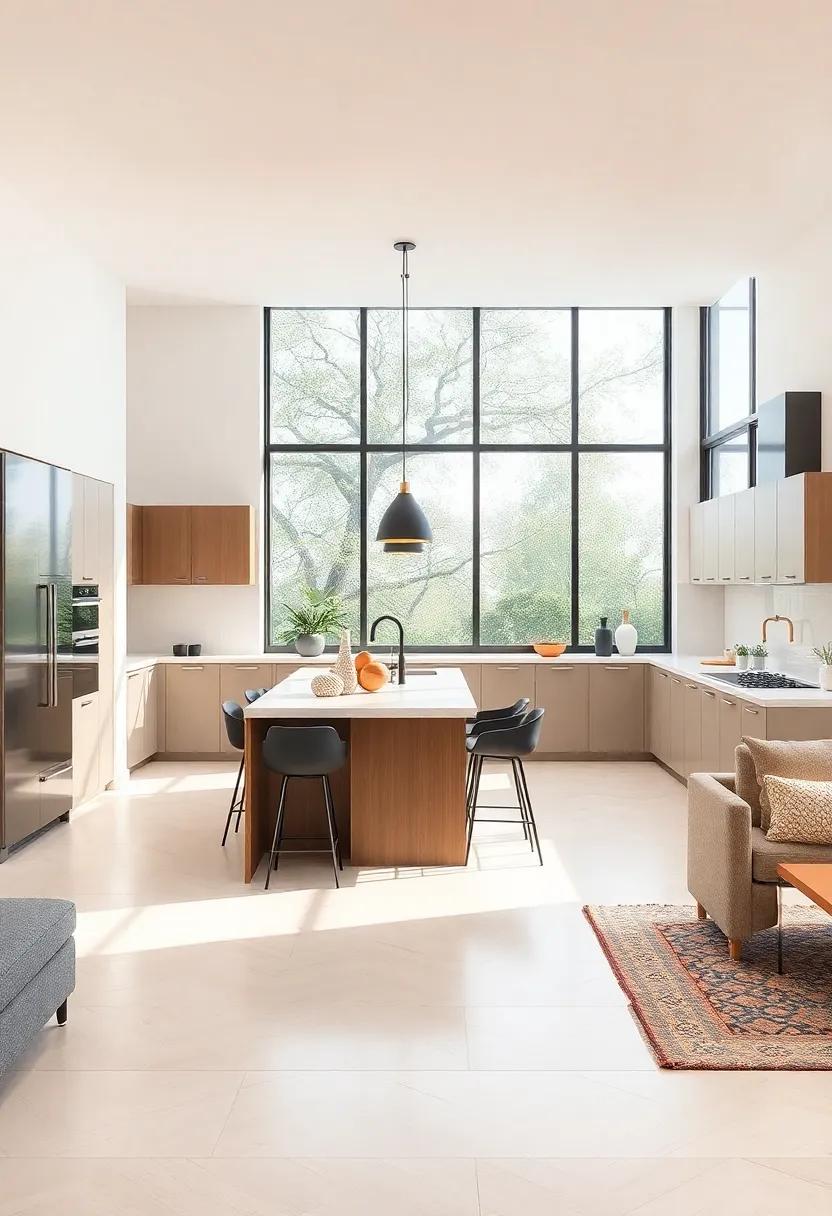
In modern design, the lines between cooking and living spaces are increasingly blurred, creating an inviting atmosphere that enhances social interaction. To achieve a seamless flow, consider integrating elements that encourage movement and connectivity. As an example, installing a kitchen island can serve as both a functional cooking surface and a casual dining area. Additionally, maintaining a consistent color palette across the two areas will unify the spaces visually, while using similar materials for countertops and furniture can enhance that coherence.
Incorporating diverse lighting options further emphasizes the connection between these spaces. Pendant lights above the island can provide task lighting while creating a focal point, whereas soft, ambient lighting in the living area can foster a warm, welcoming vibe. Open shelving that displays cookbooks or decorative items can bridge the gap between the kitchen and living room, offering practicality alongside aesthetic appeal. Ultimately, embracing the blend of functionality and comfort creates a living experience that feels both spacious and cohesive. For more design inspiration,visit House Beautiful.
The Art of Zoning: Defining Spaces Without Walls
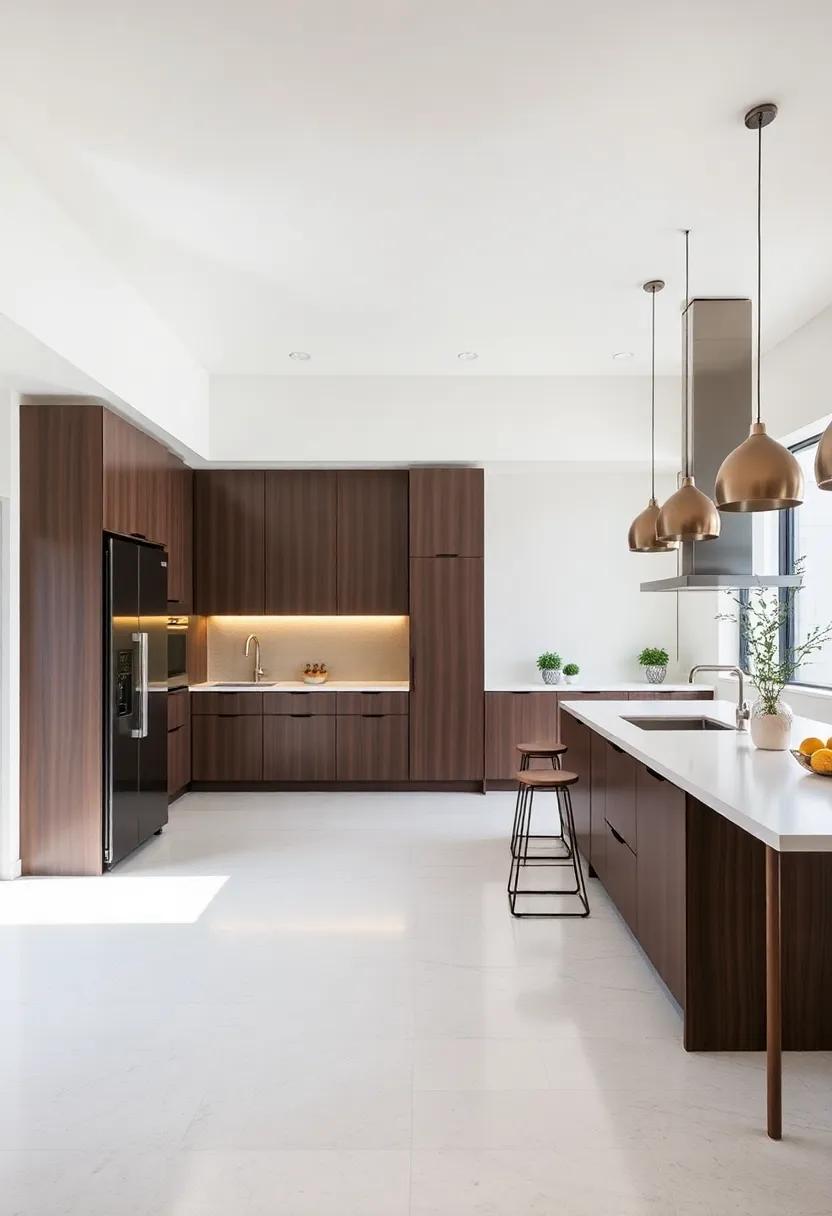
The essence of design lies not merely in the physical boundaries that separate spaces, but in the seamless transitions that flow between them. Open concept kitchen designs epitomize this philosophy, inviting a harmonious blend of functionality and aesthetics. By removing walls and barriers, these layouts foster a sense of connection, allowing for an uninterrupted flow of light, sound, and social interaction. They encourage a communal atmosphere where families can gather, cook, and converse, redefining how rooms are experienced and utilized. Natural light becomes a key player, illuminating the entire area and enhancing the visual appeal of the space.
Incorporating various elements strategically contributes to zoning within this expansive environment. Designers frequently enough employ distinct tactile materials, colors, and furnishings to create visual boundaries while maintaining an open feel. Consider the following elements that can definitely help delineate spaces without compromising openness:
- Color Schemes: Use contrasting hues to define areas, such as a bold backsplash in the kitchen paired with neutral living room tones.
- Furniture Arrangement: Position sofas or dining tables to create subtle divisions,enhancing function while encouraging flow.
- Area Rugs: Utilize texture and pattern through rugs to visually separate different zones,signaling their unique purposes.
To further illustrate the effectiveness of open concepts, the following table outlines key benefits:
| Benefit | Description |
|---|---|
| Enhanced Interaction | Allows for conversation and engagement between individuals in different areas. |
| Increased Light | Maximizes natural light throughout the space, reducing the need for artificial lighting. |
| Flexibility | Accommodates diverse activities, from cooking to entertaining, all in one cohesive area. |
By embracing these design principles, homeowners can enjoy the practical and aesthetic benefits of a cohesive living space that defies traditional boundaries. For more inspiration, visit architectural Digest to explore the latest trends and ideas in open concept living.
Incorporating Multi-Functional Furniture for Versatile Spaces
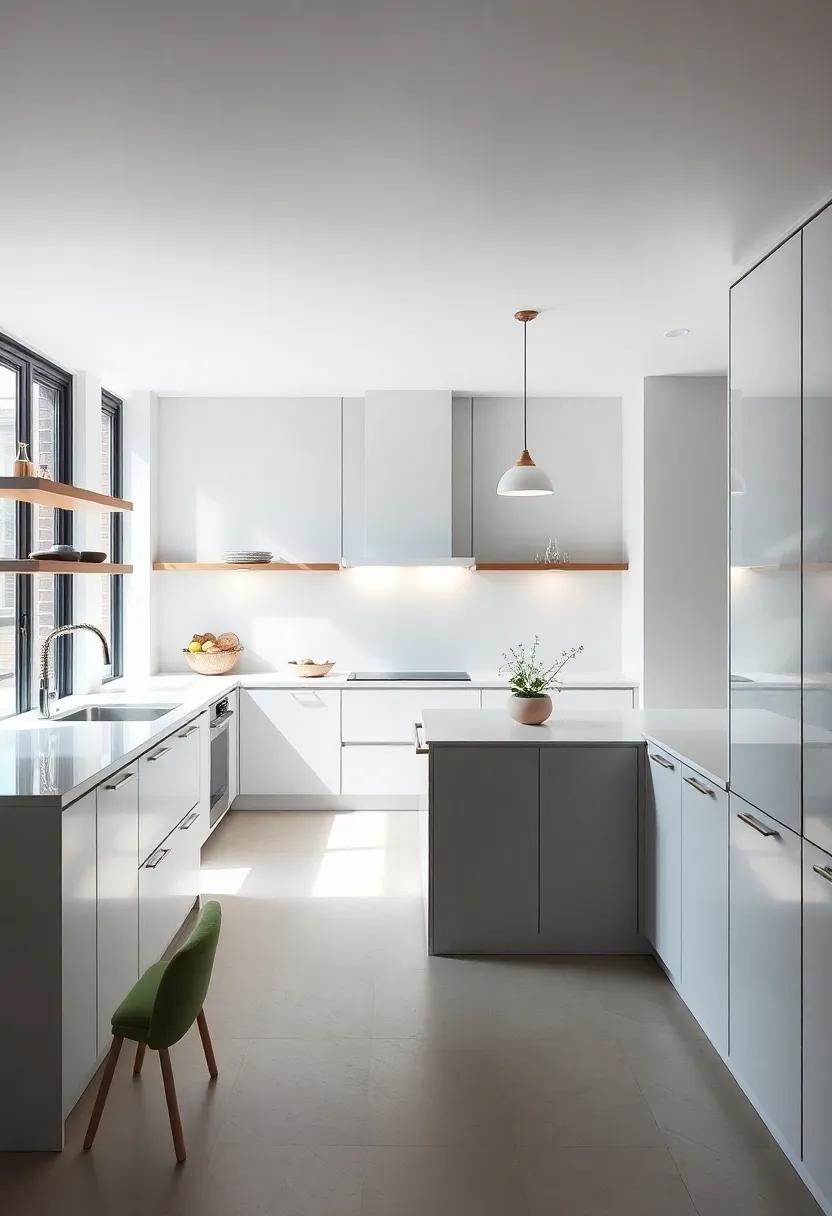
Creating a seamless flow in open concept kitchen designs frequently enough calls for furniture that serves multiple purposes.Multi-functional furniture not only maximizes space but also enhances the overall aesthetic of the home. Consider incorporating items like:
- Expandable dining tables that can adapt to larger gatherings.
- Storage ottomans that provide extra seating and hidden compartments for utensils.
- Island carts that can move for planning or serving, doubling as both a workspace and an entertaining hub.
Furthermore, by selecting furniture with a cohesive design, you can maintain a unified look while fulfilling diverse needs. Built-in benches offer seating options and can be outfitted with storage solutions to keep clutter at bay. If you’re looking to elevate yoru kitchen not just in style but also in functionality, exploring resources such as Houzz can provide inspiration and innovative ideas. Embrace these clever design solutions to create your kitchen as the heart of your home, where every piece of furniture tells a story of versatility.
Stylish Storage Solutions for a Clutter-free Open Kitchen
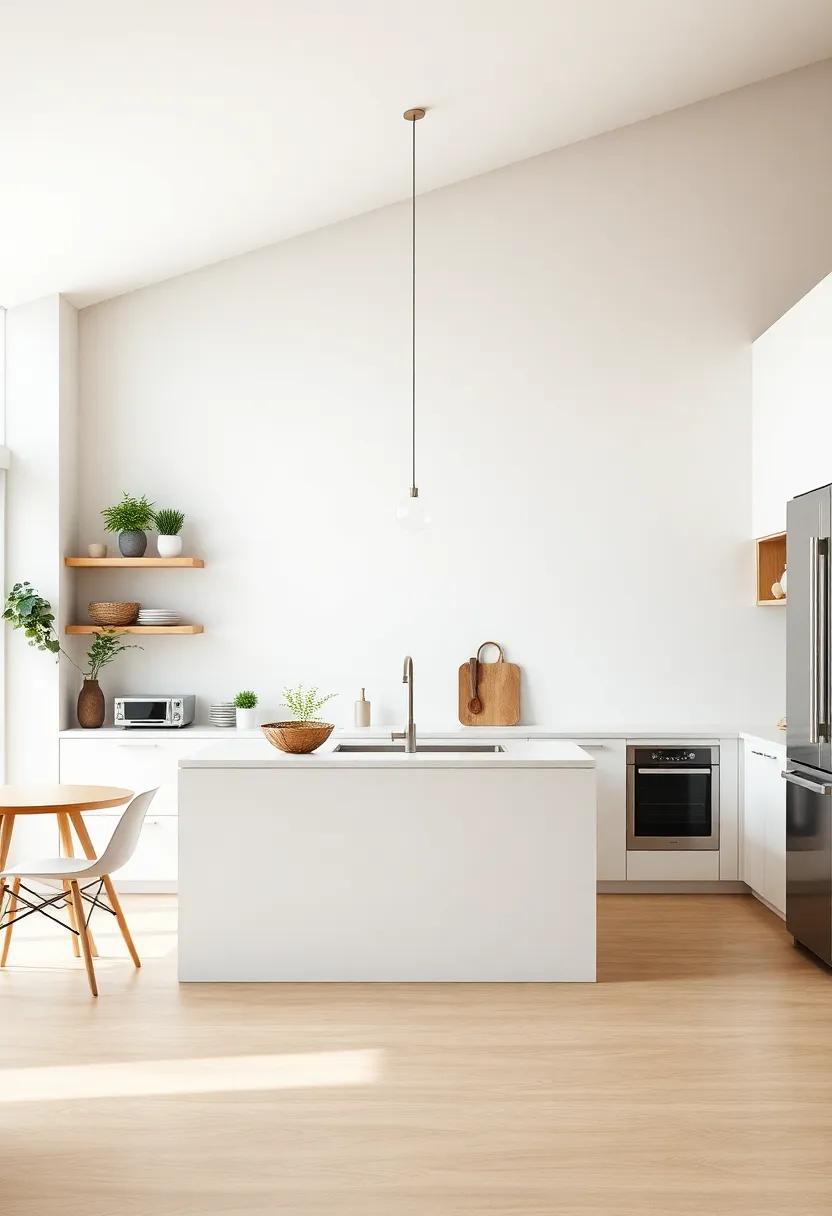
A well-designed open kitchen can be both a culinary delight and a visual showcase,but it can easily fall victim to clutter without the right storage solutions. To maintain a seamless, airy environment, consider incorporating multifunctional furniture. As an example, islands with built-in shelving or cabinets allow for easy access to kitchen essentials while providing a gathering space for family and friends. Stylish baskets and crates can add a rustic touch while storing items like fruits, vegetables, or kitchen linens. The use of magnetic strips for spices not only declutters countertop space but also creates an engaging visual display that pulls the eye upward,making those often-overlooked walls prime opportunities for both style and storage.
Utilizing vertical space is paramount in an open kitchen.Floating shelves can be an aesthetically pleasing way to keep essential dishes and glassware within reach, while decorative items add a personal touch. Drawer organizers ensure that utensils and gadgets are neatly stored and easy to find, promoting functionality without compromising on design.Expanding on this theme,a drop-leaf table can serve as an additional prep space when needed and fold away when not in use. By implementing such versatile and stylish storage solutions, your kitchen can remain clutter-free, allowing the beauty of open concept living to shine through. For more tips and ideas on maximizing space in your kitchen, visit Houzz.
Elevating culinary Experiences with Smart Technology Integration
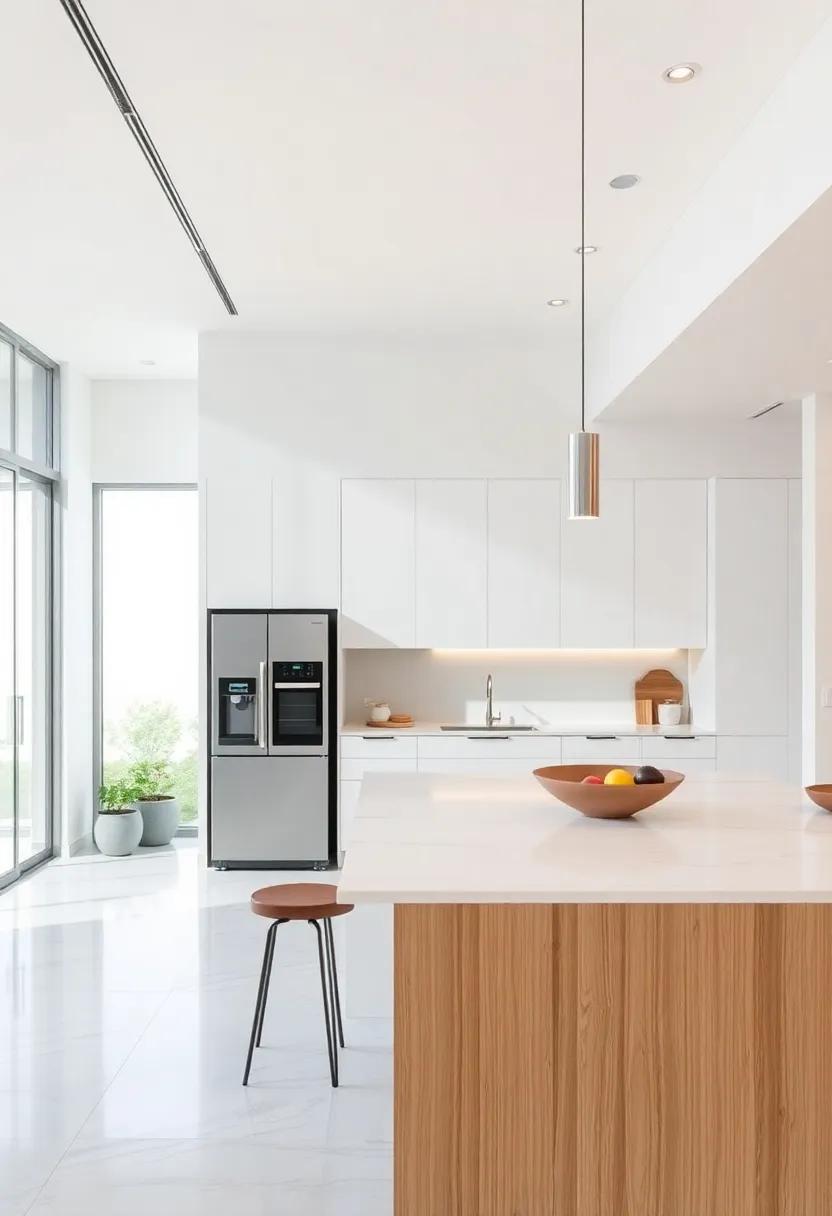
In today’s fast-paced world,the kitchen has transformed from a mere food preparation area into a hub of activity,enhanced by innovative technology. the integration of smart appliances fosters not only efficiency, but also delightful culinary experiments. Imagine controlling your oven via your smartphone,allowing you to preheat it while finishing up work or monitoring a slow-cooker meal from your patio. Such devices bridge the gap between culinary art and everyday life, ensuring superior results and a seamless cooking experience.
Furthermore, incorporating smart technology elevates aesthetic appeal while promoting collaboration in the kitchen. With integrated sound systems, smart lighting, and even voice-activated assistants, these modern enhancements create an inviting atmosphere for family and friends to gather. Here’s a glimpse into some tech features that can revamp your open concept kitchen:
- Voice-Controlled Assistants: Easily access recipes and cooking tips while multi-tasking.
- Smart Refrigerators: Keep track of inventory and suggest recipes based on available ingredients.
- Automated Lighting: Set the mood for dinner parties or cozy family dinners with customizable settings.
| Feature | Benefits |
|---|---|
| smart Thermostats | Maintains optimal cooking temperatures, preventing over or undercooked meals. |
| Connected Utensils | Guides you through recipes while measuring ingredients accurately. |
As technology continues to evolve, the kitchen remains at the forefront of these innovations, providing unique culinary experiences tailored to individual preferences and lifestyles. Embracing these advancements not only increases functionality but also breathes new life into our daily cooking rituals. For more insights into integrating smart technology into your culinary space, visit Cooking light.
Color Palettes that Enhance the Openness of Kitchen Spaces
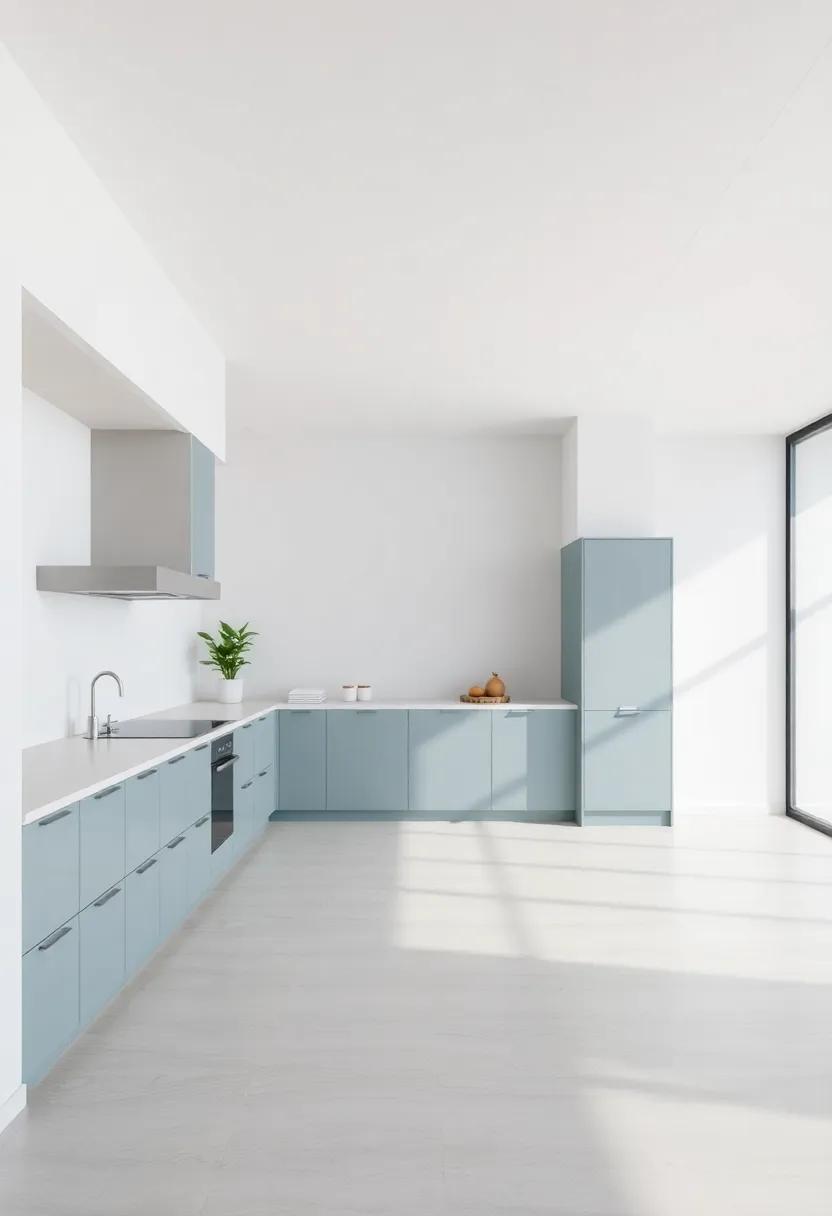
Choosing the right color palette is essential for maximizing the sense of openness in kitchen spaces. Light and airy hues,such as soft whites,pale blues,and gentle grays,can significantly enhance the feeling of space,creating an inviting and sleek atmosphere. These shades reflect light beautifully, making the area feel larger and more connected to adjacent living spaces. Additionally, consider adding accent colors through kitchen accessories or cabinetry, such as sunny yellows or natural greens, which can create delightful focal points without overwhelming the overall tranquility of the palette.
To further refine the openness of your kitchen, you can experiment with various textures and finishes. Using a combination of matte, glossy, and textured surfaces creates depth and visual intrigue. Here’s a simple overview of color combinations that can elevate your kitchen style:
| Primary Color | Complementary Accent Color | Texture Example |
|---|---|---|
| Soft White | Muted Sage Green | Matte cabinetry |
| Pale Blue | Coral Accents | Glossy backsplash |
| Light Gray | Burnt Orange | Textured fabrics |
Ultimately, the right color selection will harmonize with the open layout, providing both functionality and aesthetic appeal. For more inspiration on color schemes and designs, visit Houzz.
Sustainable Choices: Eco-Friendly Materials for Open Designs
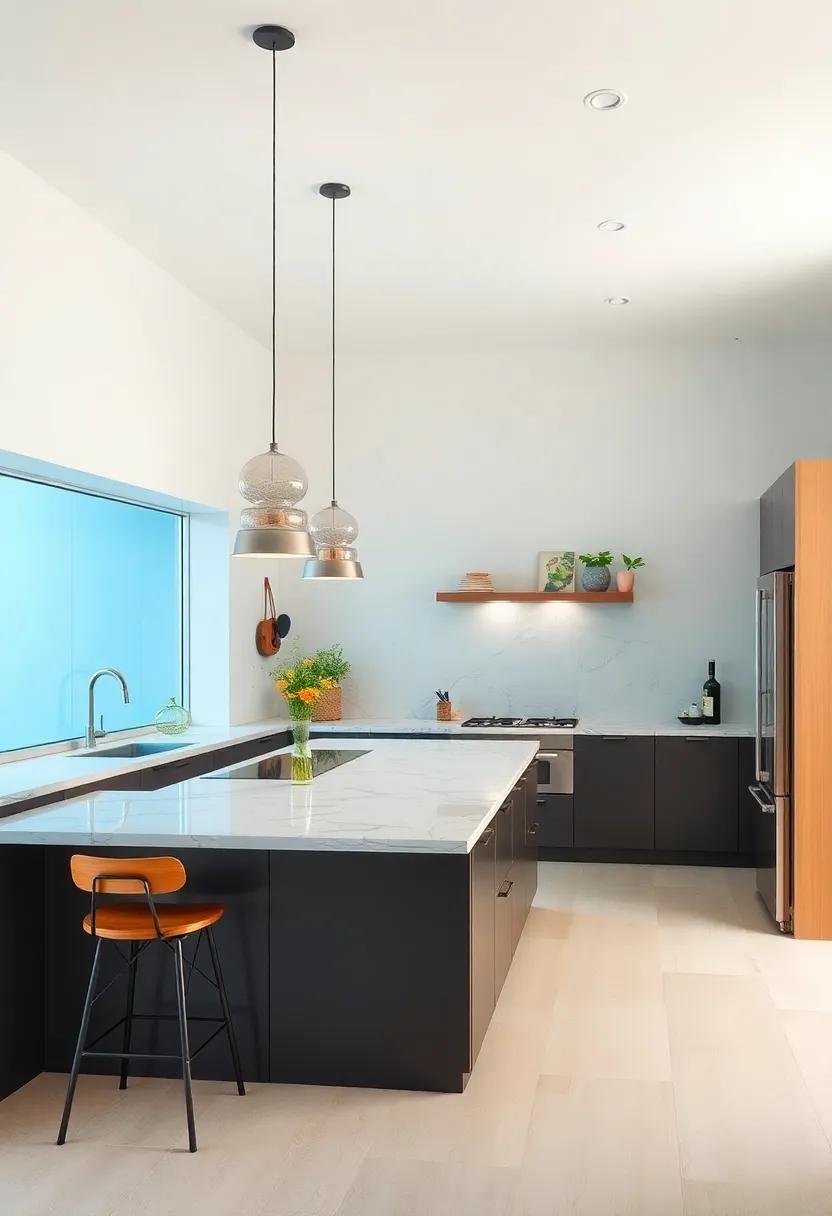
in the pursuit of beautiful and functional open concept kitchen designs, incorporating eco-friendly materials not only enhances the aesthetic appeal but also contributes to a more sustainable future.Materials such as bamboo, reclaimed wood, and recycled metal are excellent choices that couple charm with environmental consciousness. These choices not only reduce your carbon footprint but also offer unique textures and colors, breathing life into the space. When selecting countertops and cabinetry, consider using low-VOC finishes and non-toxic adhesives, which have less impact on indoor air quality, ensuring that the heart of your home remains a healthy space.
To further enrich your design, it’s essential to think about the lifecycle of the materials you choose. Natural stone, such as granite and quartzite, is not only durable but also a sustainable option when sourced responsibly. additionally, incorporating energy-efficient appliances can complement your design by minimizing energy consumption without sacrificing style. Embrace the use of sustainable textiles like organic cotton or recycled polyester for seat cushions and window treatments. The combination of these eco-friendly materials not only elevates the beauty of your open concept kitchen but also carries a commitment to preserving our planet for future generations. for more inspiration on sustainable design, visit greenbuildingadvisor.com.
Accessorizing Open Kitchens: The Power of Decorative Elements
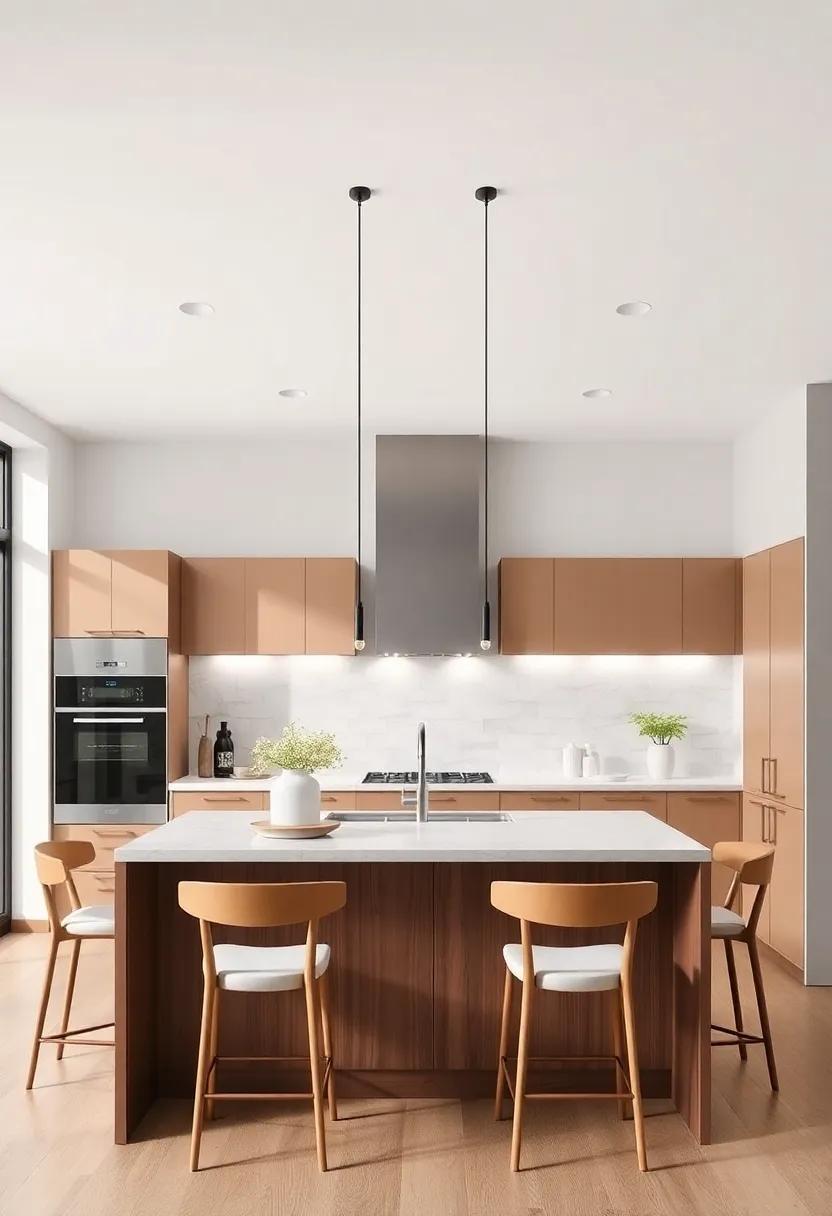
In an open kitchen, the absence of walls calls for creativity in how you accessorize the space, turning it into a canvas for personal expression. Consider incorporating elements such as colorful statement pieces, functional decor, and unique textures that can seamlessly blend with your kitchen’s style while enhancing its aesthetic appeal.You might want to include:
- Artistic wall hangings that resonate with your personality and harmonize with the kitchen’s color scheme.
- Stylish storage solutions like decorative jars or vintage containers, which can organize while being visually appealing.
- Charming tableware displayed openly for easy access and as a part of your decor.
another effective way to enrich an open kitchen is through the meticulous selection of lighting fixtures. Choose luminaries that not only illuminate but also serve as conversation starters, like pendants that cascade gracefully above an island or shining, minimalist sconces against a vibrant backdrop. Additionally, integrating plants can breathe life into the environment; herbs not only act as decor but can enhance your cooking experience. An attractive and functional approach might be displayed in a table:
| Element | Function | Style |
|---|---|---|
| Herb Planters | Fresh ingredients | Rustic charm |
| Artistic Bowls | Food display | Contemporary flair |
| Colorful Fixtures | Ambient lighting | Eclectic vibe |
By thoughtfully selecting decorative elements, you transform an open kitchen from merely a cooking area into a vibrant hub of creativity and interaction. For more inspiration on kitchen decorating, visit Architectural Digest.
Emphasizing Connection: Family and Friends in an Open Kitchen
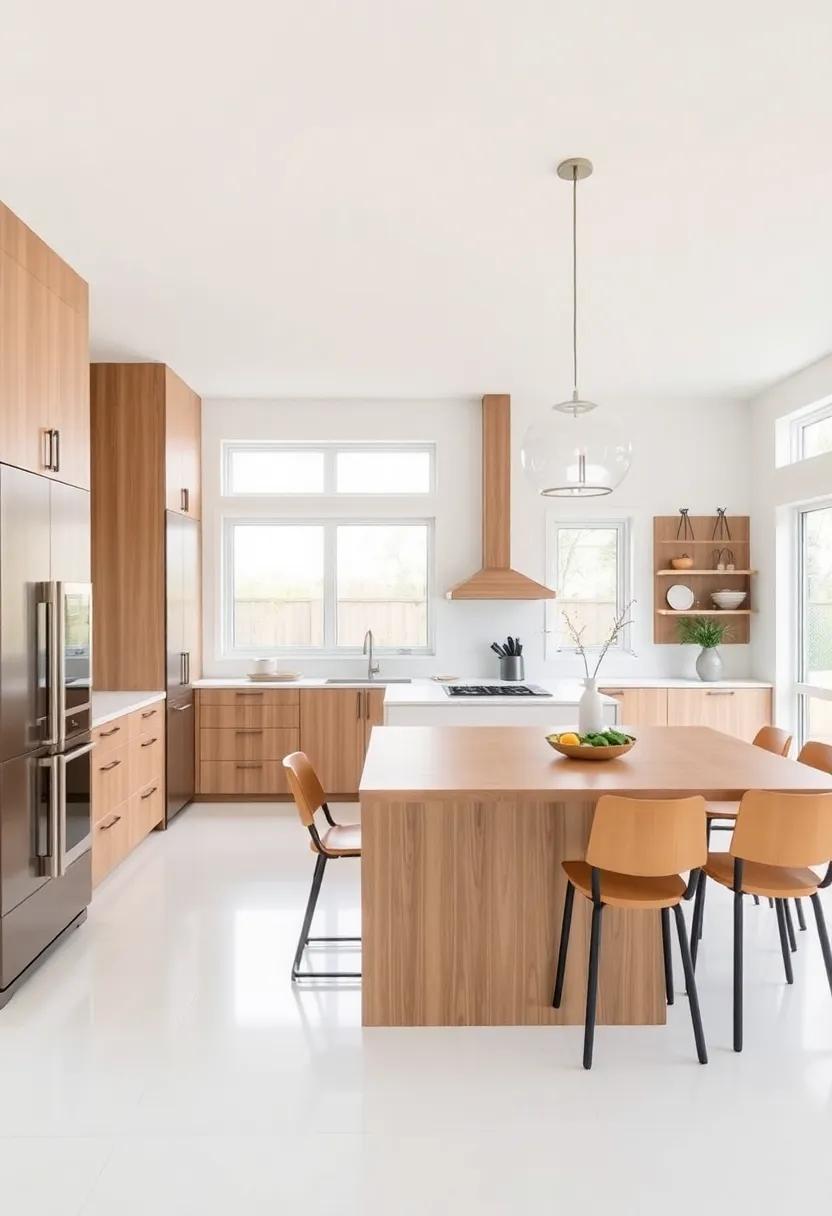
In an open kitchen layout, the boundaries between cooking and shared living space dissolve, inviting family and friends to come together in a way that’s both functional and heartwarming. The appeal lies in the seamless flow that encourages interaction, making it easier to engage with loved ones while preparing meals. Imagine chopping vegetables for a stir-fry while your partner sips coffee nearby, or sharing laughter with friends over a bottle of wine as dinner simmers on the stove. This environment fosters connection, keeping conversations alive and strengthening bonds through collaborative cooking experiences.
To enhance the sense of community in this space, consider incorporating elements that inspire togetherness, such as:
- Open Shelving: Display favorite cookbooks and cherished serving dishes that invite others to join in.
- Island Seating: A kitchen island with stools creates an informal dining setup, perfect for casual gatherings.
- Integrated Technology: Smart appliances that keep everyone connected, from sharing recipes to playing music.
| Feature | Benefit |
|---|---|
| Open Layout | Encourages interaction and engagement among family and friends. |
| Central Island | Serves as a social hub, fostering connections during meal prep. |
| Natural Light | Creates a welcoming atmosphere that feels lively and inviting. |
Ultimately, an open kitchen doesn’t just serve the practical purpose of cooking; it becomes a vital space for creating memories and building relationships. For more about designing spaces that prioritize connection, visit Houzz.
Maximizing flow: The Importance of Traffic Patterns in Layouts
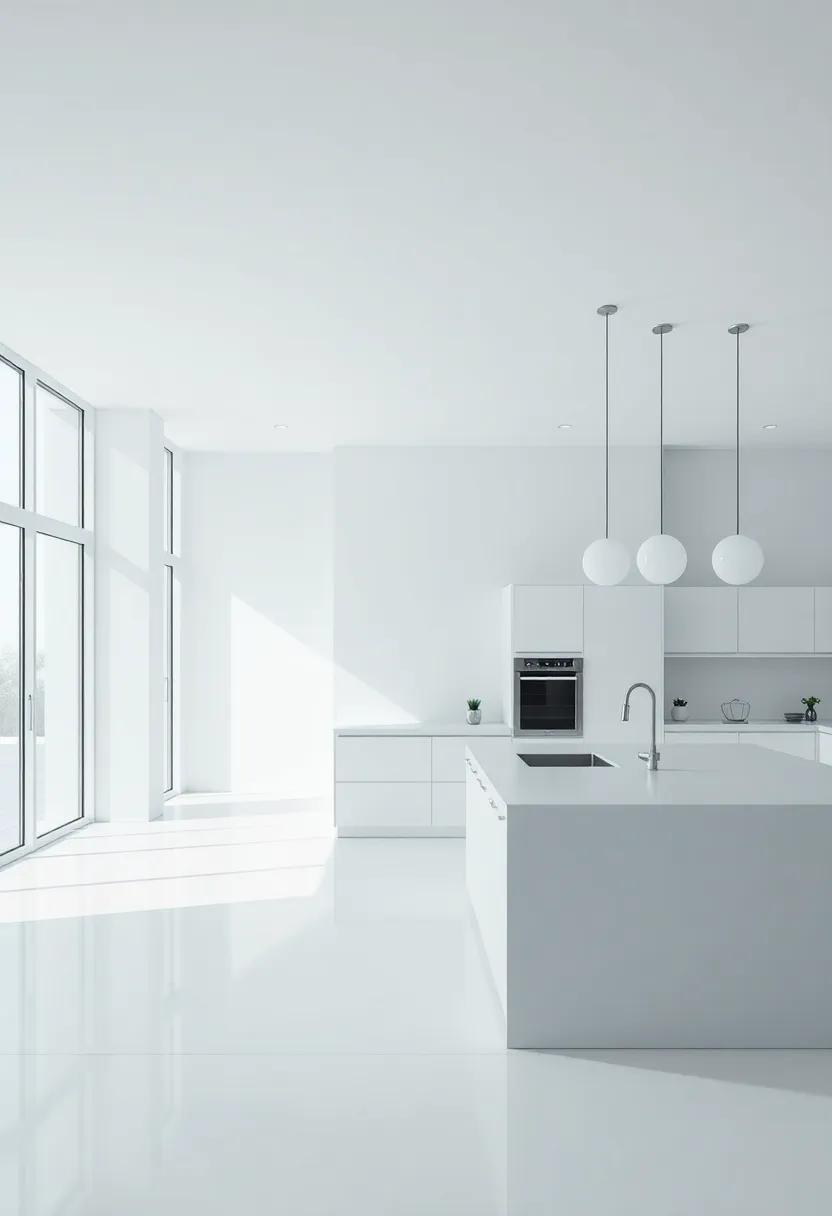
In the realm of open concept kitchen designs, understanding traffic patterns becomes crucial for enhancing both functionality and aesthetics. With multiple family members or guests moving freely between the kitchen, dining, and living areas, a well-thought-out layout not only facilitates easy navigation but also promotes a sense of unity. Considerations for smooth flow can include implementing island seating, which provides a natural gathering space while ensuring that pathways remain unobstructed. Key elements to prioritize for maximizing efficiency include:
- Clear Pathways: Maintain at least 42 inches of clearance in high-traffic areas.
- Avoiding Obstacles: Place cabinetry and appliances strategically to prevent crowding.
- Defined Zones: Use functional areas, such as prep zones and cooking stations, to streamline activities.
By organizing the space according to the natural movement of individuals, open concept kitchens can transform into hubs of activity without chaos. Moreover,attention to decorative elements—like stylish bar stools,kitchen islands,and open shelving—can significantly influence the overall ambiance while still prioritizing movement. For those looking to deepen their understanding of design principles, exploring resources on how architecture shapes daily life may provide invaluable insights. A well-executed layout ultimately invites guests to mingle freely and elevate the social experience of the home.
| Aspect | Consideration |
|---|---|
| Traffic Flow | Ensure weight distribution for easy circulation. |
| Storage Solutions | Incorporate islands with cabinets for efficient association. |
| Lighting | Balance natural and artificial light to enhance the sense of space. |
For more insights on maximizing space within your home, visit Apartment Therapy.
Inspiring Trendy Design Elements: The Rise of Minimalist Open Concepts
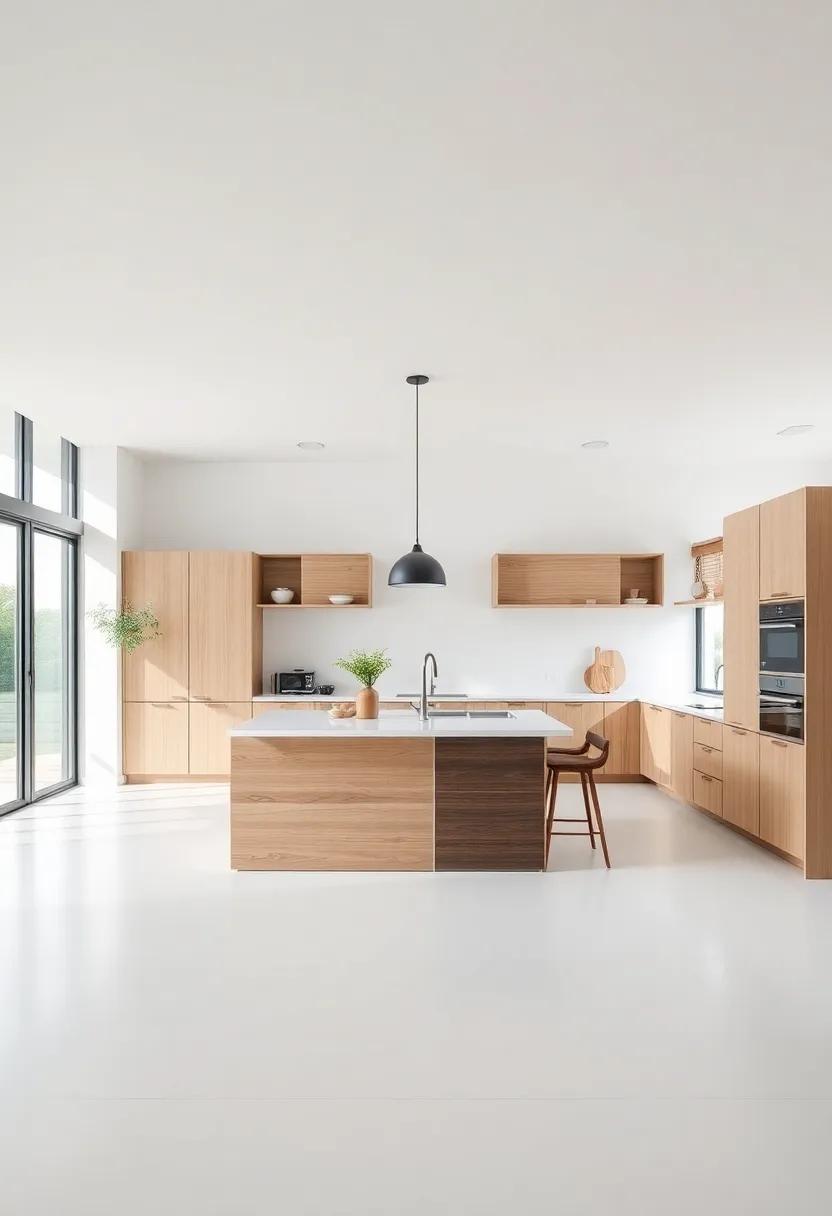
As we transition into an era where aesthetic simplicity reigns supreme, the embrace of uncluttered spaces becomes increasingly popular. Minimalist open concept kitchen designs exemplify this trend, inviting an effortless flow between cooking and living areas.Key elements of these designs frequently enough include clean lines, neutral color palettes, and natural materials, all carefully selected to enhance the space’s functionality while minimizing visual distractions. The result is a serene environment that fosters creativity and connection,seamlessly blending culinary endeavors with daily life.
One of the hallmarks of these trendy designs is the impact of natural light. Expansive openings and unobstructed layouts not only maximize luminosity but also accentuate the beauty of open spaces. Features such as large windows or skylights invite the outdoors in, creating a sense of harmony and well-being. With the rise of eco-conscious living, incorporating sustainable materials and energy-efficient appliances also plays a pivotal role in these designs. Consider the following elements commonly found in minimalist open concept kitchens:
- Integrated appliances for a sleek appearance
- Multi-functional islands that serve as both prep space and dining area
- Hidden storage solutions to maintain a clutter-free environment
| Feature | Benefit |
|---|---|
| Open Layout | Enhances social interaction and movement |
| Natural Materials | Brings warmth and texture to the design |
| Neutral Colors | Creates a calming atmosphere |
For those looking to embrace this fresh vision of home design, exploring resources such as house Beautiful can inspire innovative ideas that reflect personal style while maintaining a minimalist approach.
Combining Indoor and Outdoor Living with Open Kitchen Designs
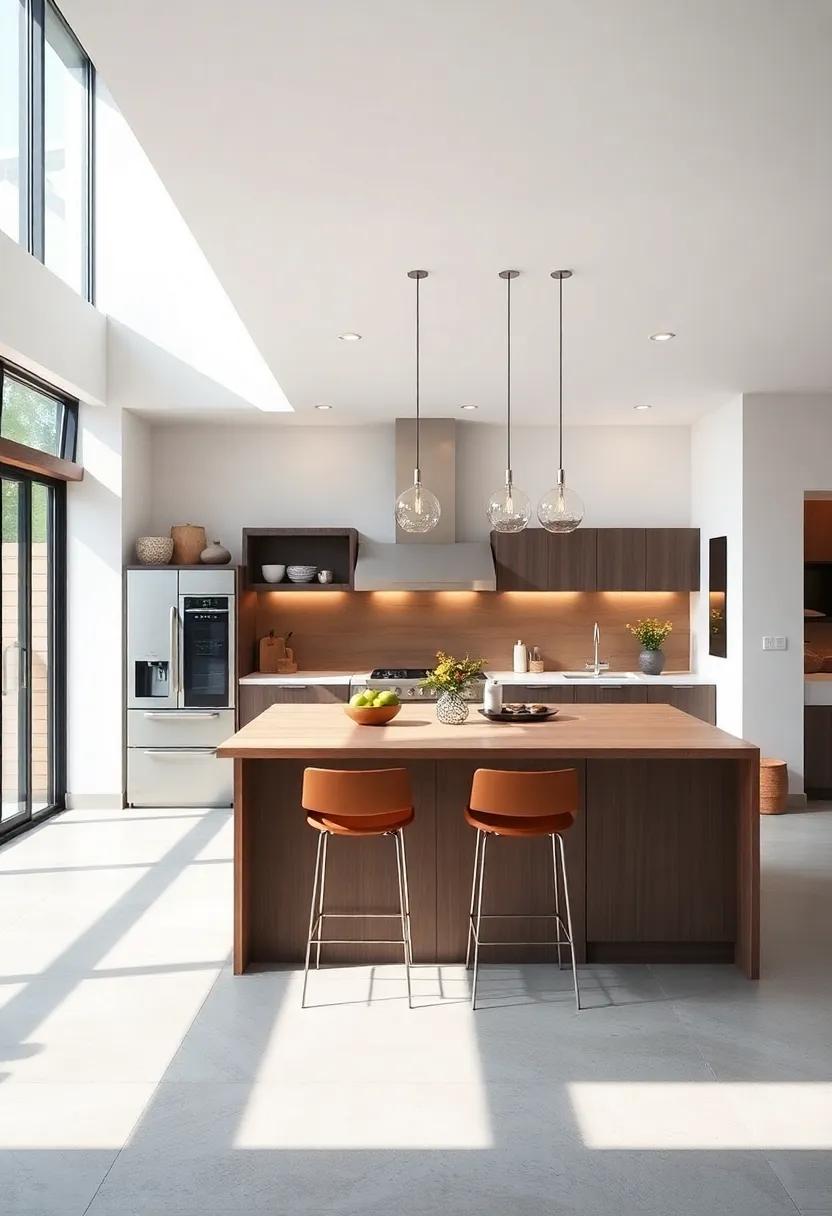
Open kitchen designs are increasingly becoming the centerpiece of modern homes, seamlessly marrying indoor and outdoor spaces. This integration fosters a sense of continuity between the two environments, blurring the lines and enhancing accessibility. Imagine stepping out from your culinary paradise into a beautifully designed patio, where you can effortlessly entertain guests or enjoy a quiet moment with loved ones. Key design elements that help achieve this harmonious flow include:
- Large Sliding Doors: They allow for easy transition and can often be opened up fully to create a unified space.
- Outdoor Kitchens: Incorporating grills and countertop spaces outdoors makes cooking a social event.
- Consistent Flooring: Choosing materials that extend from the kitchen to the patio creates visual unity.
- Natural Light: Maximizing windows and skylights enhances both areas, making the indoors feel as inviting as the outdoors.
To further elevate your space, consider furniture and decor that reflect a natural aesthetic, blending the coziness of the interior with the rugged beauty of nature. Opting for earthy tones and organic materials can help create a seamless transition. Moreover, the layout of your kitchen can encourage social gatherings; such as, an island that opens to the outdoor area can serve as a buffet or bar, welcoming guests to interact while meals are being prepared.Check out Architectural Digest for more innovative ideas and inspiration on combining environments.
Elevating Style Through Unique Backsplash and Countertop Choices
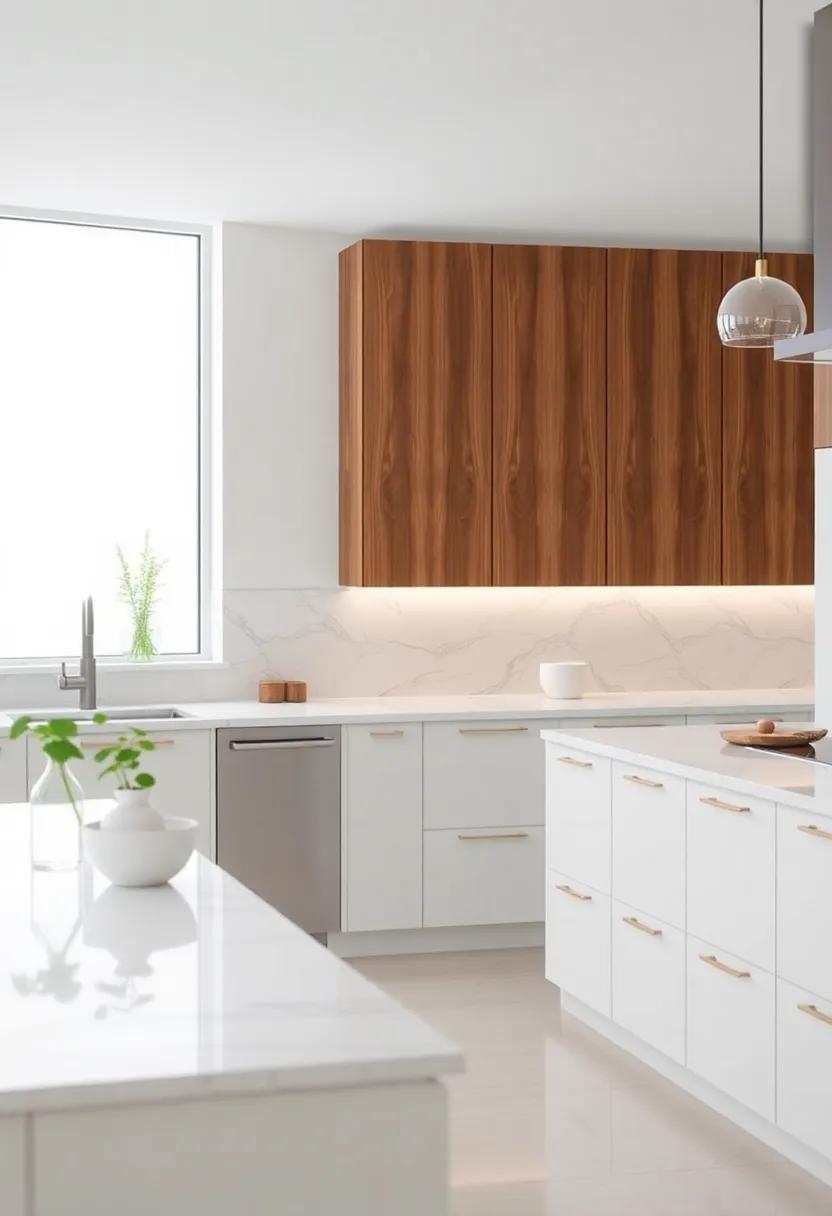
In the quest to enhance your kitchen’s aesthetic, a thoughtfully selected backsplash and countertop can serve as the ultimate exclamation point.Consider materials such as marble, quartz, or reclaimed wood; each brings a distinct personality to the space. A striking backsplash can create a visual focal point, while the right countertop not only offers functionality but also complements the overall ambiance of the kitchen.Combining contrasting textures, like a smooth quartz counter with a glossy subway tile, can elevate your design to new heights, inviting warmth and sophistication into an open layout.
Choosing unique designs positions your kitchen as an expression of personal style. Here’s a quick look at some popular choices:
- Geometric Patterns: Adds visual intrigue with modern flair.
- Natural Stone: Delivers timeless beauty and unique variations.
- Bold Colors: Infuses energy and character into your cooking space.
- Glass Tiles: Reflects light beautifully, enhancing the feeling of openness.
With the right combinations, the possibilities are endless. An inspiring approach is to mix and match materials, reflecting your personal tastes while maintaining elegance. Check out sites like Houzz for innovative ideas and trends that can help you curate a kitchen that feels both inviting and functional.
Open Concept Kitchens for Entertaining: Setting the Scene
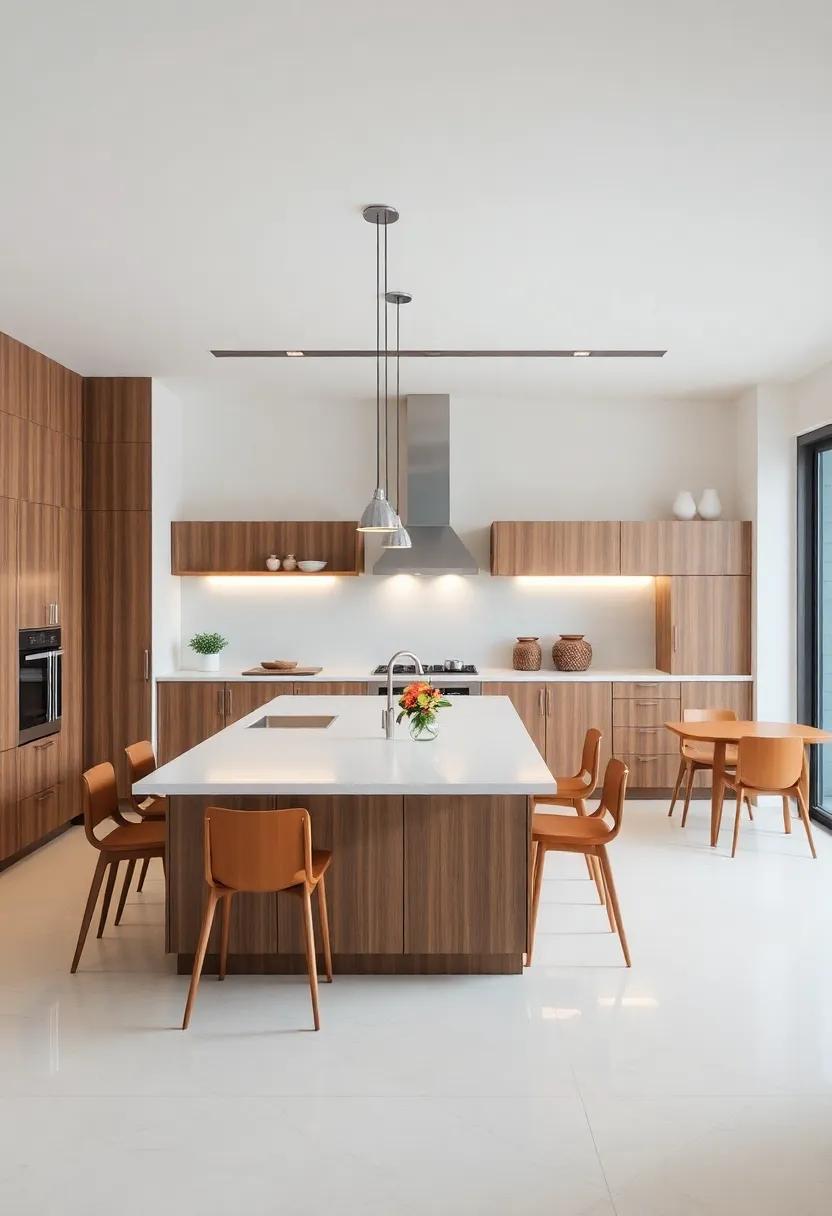
Open concept kitchens are a harmonious blend of style and functionality, facilitating a seamless flow between cooking and socializing. When you have guests over, the kitchen transforms into the heart of the gathering, allowing you to entertain effortlessly. Whether you’re preparing hors d’oeuvres or mixing cocktails, the design invites everyone to join in. To set the perfect scene for entertaining, consider incorporating elements like:
- Island seating: A central island not only acts as an additional preparation area but also provides a casual dining space for guests.
- Ambient lighting: Warm, inviting lighting can create a cozy atmosphere; pendant lights over the island or under-cabinet lighting add an elegant touch.
- Open shelving: showcasing beautiful dishware or decor can spark conversation and add personality to your space.
To further enhance the experience, the use of color and texture can create a welcoming vibe. Soft, earthy tones can foster warmth, while bold accents invite excitement. Additionally, consider integrating technology with smart kitchen appliances and sound systems that keep you connected while entertaining.Here’s a simple breakdown of elements to include for a naturally inviting space:
| Element | Function |
|---|---|
| Seating | Encourages conversation and keeps guests engaged. |
| Lighting | Sets the mood and highlights key areas. |
| Technology | Increases convenience and enhances the overall experience. |
By artfully combining these elements, open concept kitchens become not just a part of your home but a delightful stage for memorable moments with friends and family. For more inspiration and design tips, visit house Beautiful.
Unleashing Creativity: Personalizing Open Kitchen Aesthetics
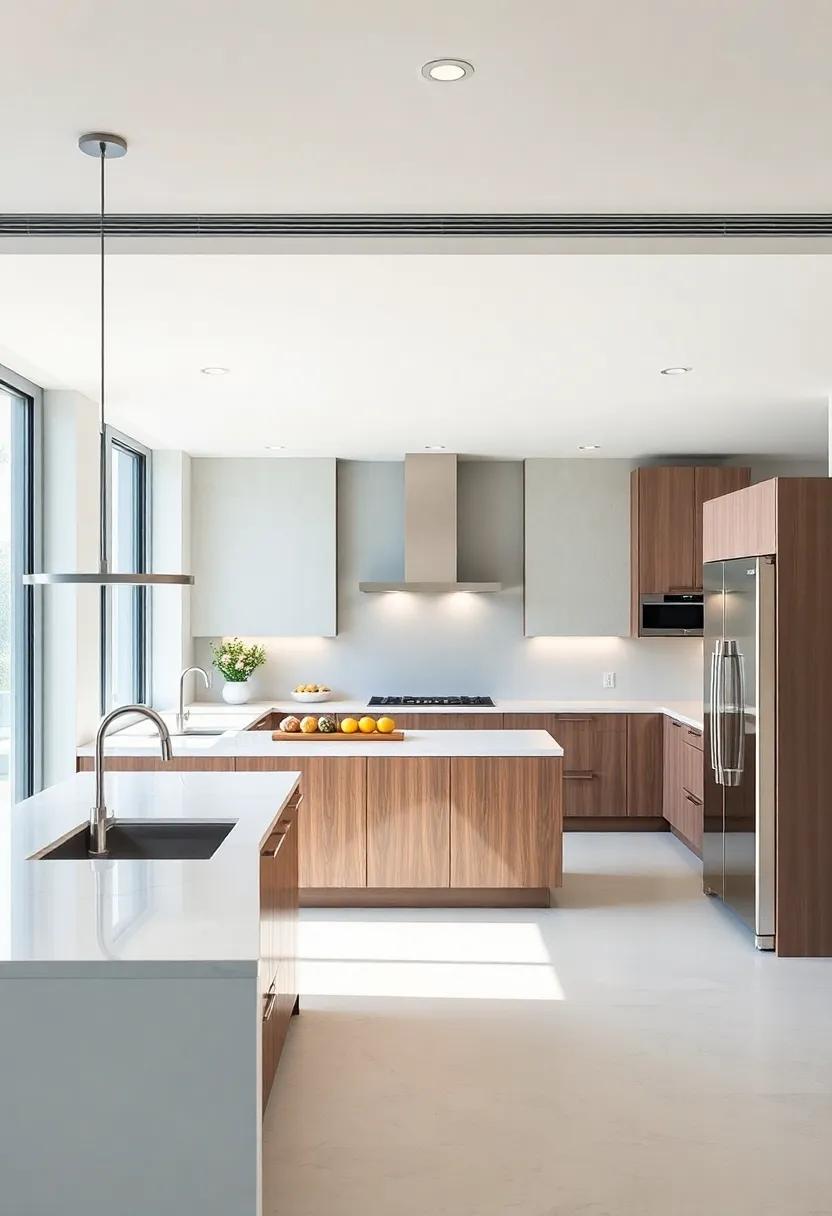
In the vibrant canvas of open kitchen designs, the prospect to express individual style is boundless. By embracing a personalized aesthetic, homeowners can transform kitchen spaces into reflections of their personality. Options for customization abound, from selecting unique cabinetry finishes to incorporating statement light fixtures that cast a warm ambiance. Texture and color play pivotal roles, with experimental backsplash designs or bold countertop materials weaving narratives that encapsulate the owner’s passion for cooking or entertaining.
Consider integrating multifunctional elements into your kitchen layout, enhancing both form and function. A well-curated blend of open shelving for decorative dishware and practical storage solutions can establish a harmonious balance. Adding striking decor pieces, like art or greenery, can further convey a sense of warmth. Furthermore, choosing appliances in trendy hues or stainless finishes can add a contemporary edge. For inspiration, you might explore Houzz to see how various households have personalized their culinary spaces.
The Investment value of Open Concept Kitchen Designs in Homes
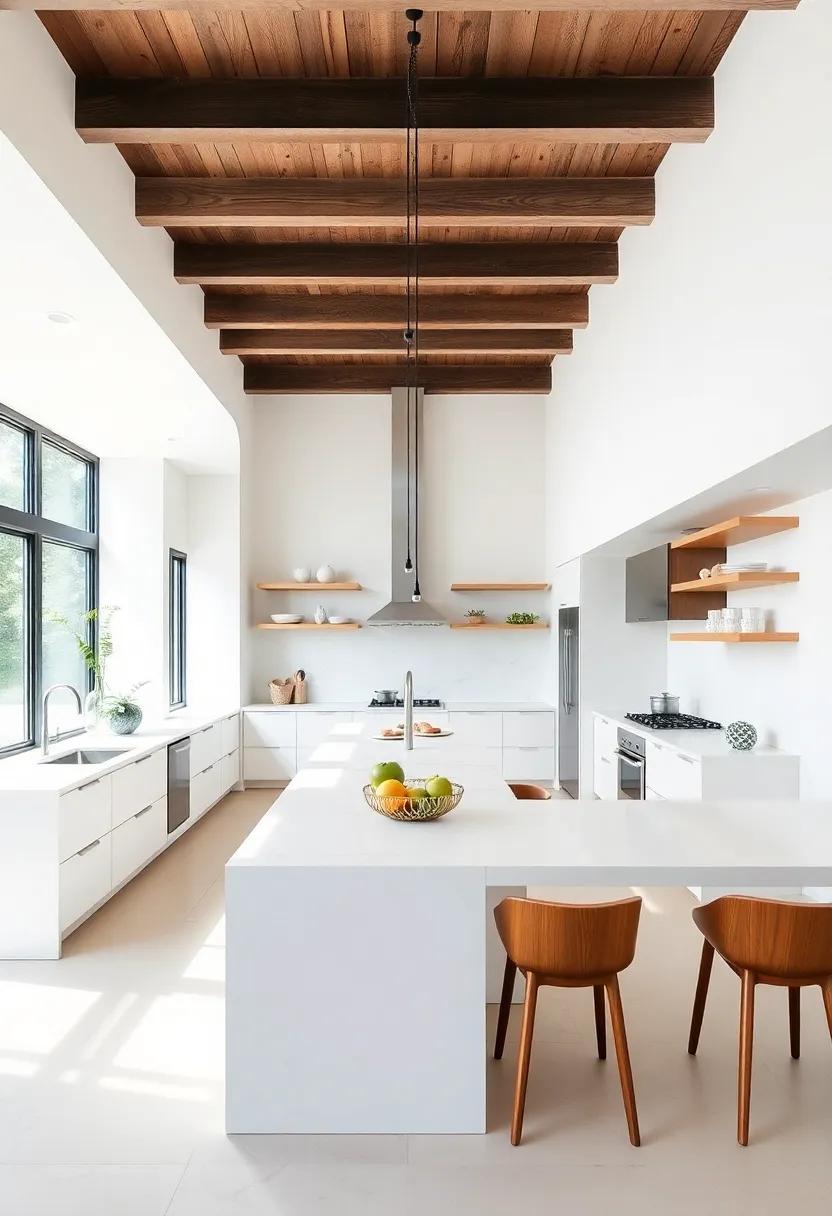
Open concept kitchen designs have emerged as a popular choice among homeowners, not only for their aesthetic appeal but also for their remarkable investment value. With an emphasis on spaciousness and natural light, these layouts create an inviting atmosphere that can significantly enhance the overall value of a home. The streamlined flow between the kitchen, dining, and living areas fosters social interaction and encourages family gatherings, which are highly sought after in today’s market. This layout appeals to potential buyers, making homes with open concept designs a hot commodity, often commanding higher prices.
Investing in an open concept kitchen can yield substantial returns, as homes with these layouts often sell faster than their more segmented counterparts. Key factors contributing to this investment value include:
- Market Demand: Open spaces are now a high priority for many buyers.
- Flexible Usage: These designs offer multifunctional spaces adaptable to various needs.
- Modern Appeal: They align with contemporary design trends that emphasize simplicity and brightness.
According to a study by the National Association of Realtors,a well-executed open concept can increase overall home value by up to 20%. This percentage is notably important in metropolitan areas where space limitations make larger layouts even more desirable. For more insights into maximizing your home’s value through design, visit NAR.
Capturing the Essence of community with Open Kitchen Spaces
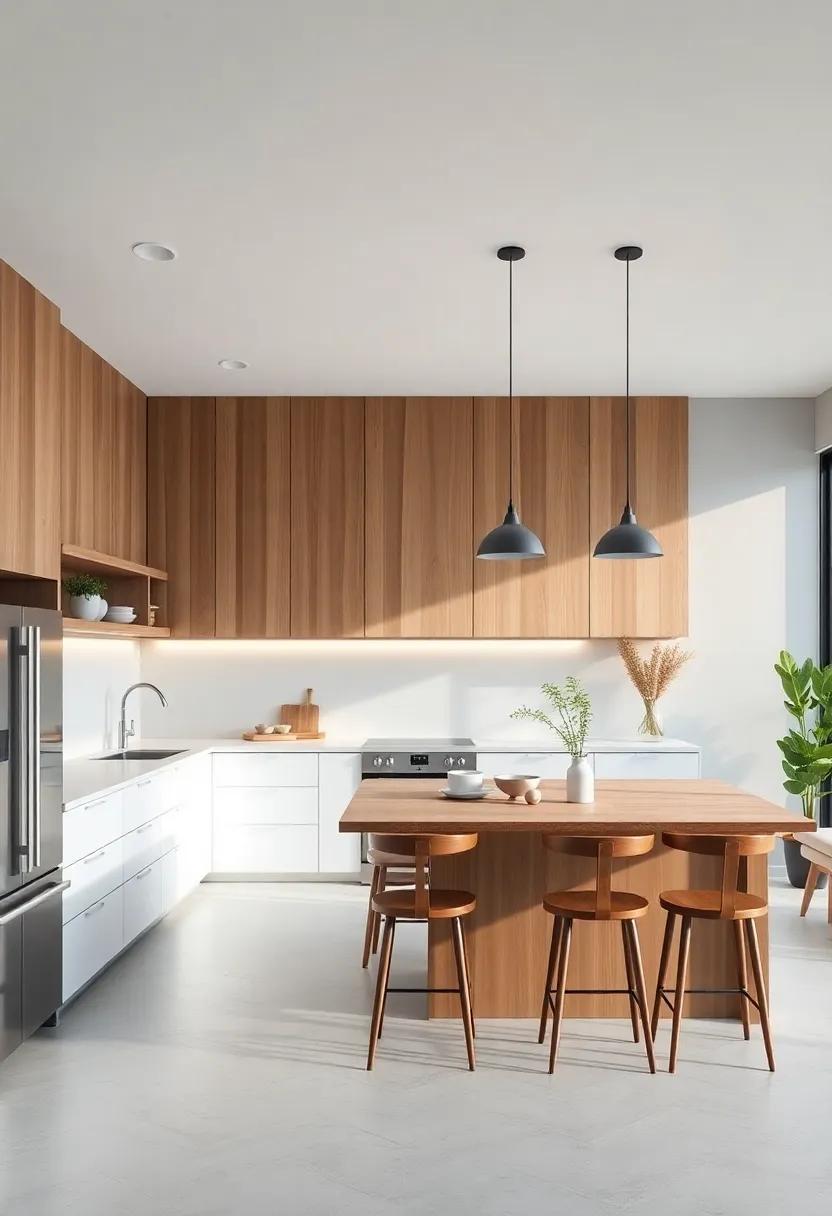
Open kitchen spaces serve as a nucleus for family life and social interaction, effectively capturing the essence of community. These designs break down barriers, inviting friends and family to gather, converse, and collaborate on culinary adventures. The fluidity woven into the concept promotes a sense of togetherness that traditional kitchen layouts often lack. Families can enjoy cooking together, while guests can easily converse with the chef, creating an atmosphere of warmth and engagement. With thoughtful design elements such as island seating, shared dining areas, and accessible storage, these kitchens transform cooking from a solitary task into a shared experience.
Moreover, the incorporation of natural light and open sight lines deepens the connection between the kitchen and adjacent living areas, enhancing the overall flow of the home. An inviting color palette paired with functional furnishings turns the kitchen into more than just a cooking space; it becomes a vibrant hub of creativity and collaboration. As people share recipes, stories, and laughter, the open kitchen not only meets the practical needs of meal preparation but also reinforces the bond of community. For more inspiration on open kitchen designs, you can explore resources from Houzz.
Insights and Conclusions
As we draw the curtain on our exploration of open concept kitchen designs, it’s clear that these spaces transcend mere aesthetics; they encapsulate a lifestyle. By breaking down barriers and inviting an effortless flow between cooking, dining, and living areas, open kitchens embody both versatility and connection. Whether you’re gathering with loved ones or immersing yourself in culinary creativity, the allure of these designs lies in their ability to harmonize functionality with a sense of togetherness.
In an age where our homes serve as both sanctuaries and social hubs, embracing an open concept kitchen is more than a design choice; it’s an invitation to foster community, celebrate creativity, and experience the joy of shared spaces. As you consider your kitchen’s future,remember: it’s not solely about the layout; it’s about the life that unfolds within it. so, take a step back, envision the possibilities, and let your kitchen be a canvas for connection and creativity in your home.
As an Amazon Associate I earn from qualifying purchases.

